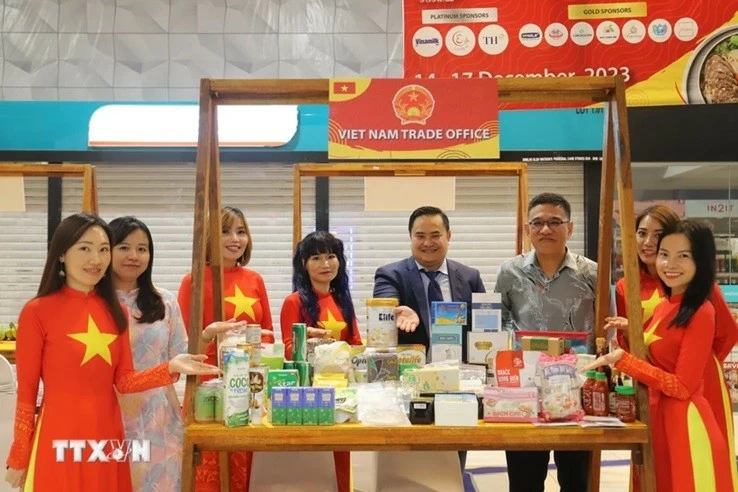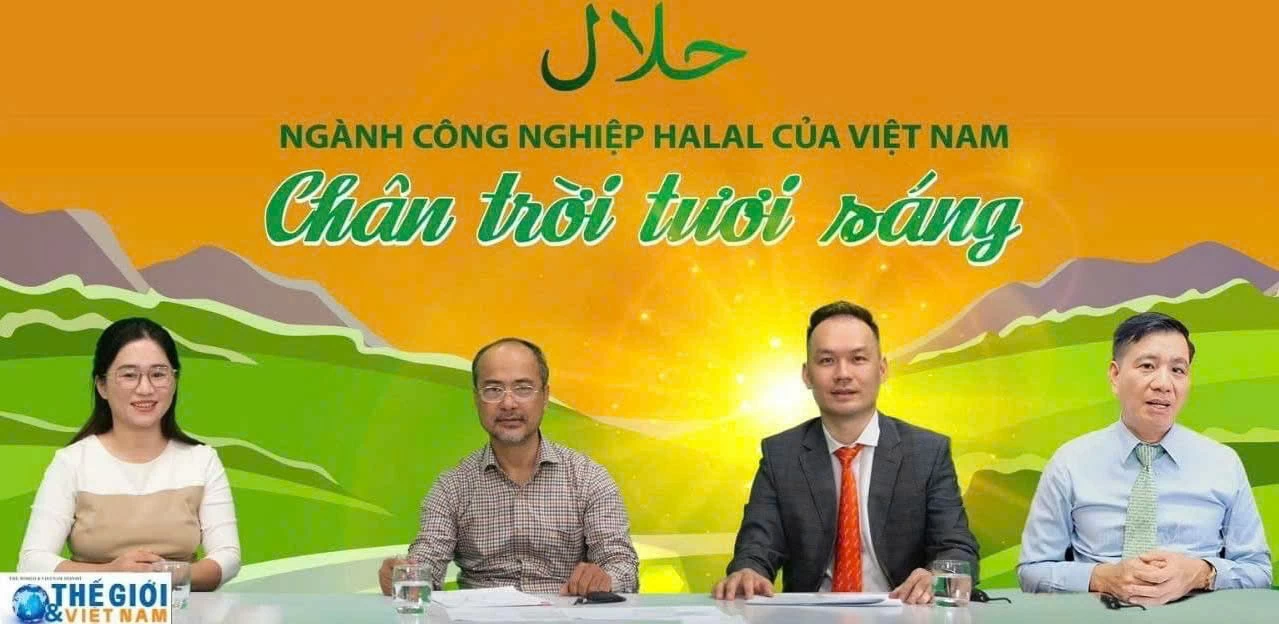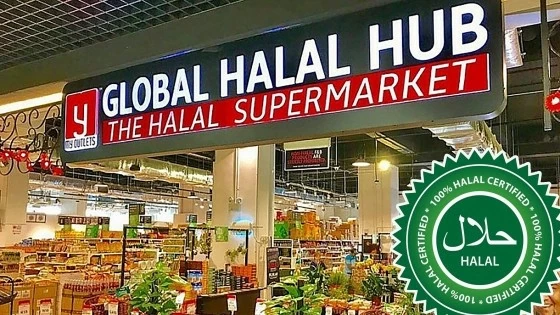
Halal Vietnam - A bright horizon (Part II): The 'passports' for Vietnam to overcome barriers
Latest
 |
| Currently, around 3,000 Vietnamese products have received Halal certification from Malaysia. The photo shows the Vietnam Food and Beverage Fair in Penang, Malaysia, in December 2023. (Source VNA) |
In the talk show "Vietnam's Halal Industry: A Bright Horizon" hosted by the World and Vietnam Report, former Vietnamese Ambassador to Austria and former Director of the Middle East and Africa Department (Ministry of Foreign Affairs), Nguyen Trung Kien; Assoc. Prof. Dr. Dinh Cong Hoang, Head of the Middle East and West Asia Research Department at the Institute of South Asia, West Asia and Africa, and Vietnamese Ambassador to Malaysia Dinh Ngoc Linh, analyzed the advantages that Vietnam possesses, akin to "passports" that help overcome barriers in opening up this potential market.
Numerous potentials, no competitions
Mr. Nguyen Trung Kien believes that competition is both a challenge and an opportunity in any field. However, Vietnam does not face competition in the Halal industry, and its entry into this market is not too late.
 |
| The talk show "Vietnam's Halal Industry: A bright horizon" hosted by the World and Vietnam Report. (Photo: Anh Tuấn) |
Therefore, to strengthen its position, Vietnam must rise in this market, surpass itself, ensure that its products meet standards, and dominate the market. Mr. Nguyen Trung Kien is confident that Vietnam can absolutely achieve this.
According to the former Director of the Middle East and Africa Department, one of the consistent views among diplomatic officials in recent years is that diplomacy ultimately serves development and the economy.
In the regard of Halal, diplomats share this strong determination. They are fully aware that the demand for products for the Muslim population is substantial, and Vietnam can absolutely meet this demand. Therefore, by all means, diplomats are promoting the Halal industry, demonstrating their commitment to using diplomacy to support development.
To further reinforce Mr. Nguyen Trung Kien's perspective of "not late, not competitive", the Vietnamese Ambassador to Malaysia Dinh Ngoc Linh, shared an inspiring story from the host country regarding the formation and development of the Halal industry.
Ambassador Dinh Ngoc Linh noted that, unlike Vietnam, Islam is the state religion of Malaysia, providing a favorable foundation for the development of the Halal industry. However, Malaysia did not have a Halal industry from the very beginning of its nationhood, it has been a relatively long process.
In 1970, Malaysia opened a restaurant that met international Halal standards, marking the beginning milestone of its entry into this market. Since then, Malaysia has gradually improved its legal frameworks, and most recently, the country announced a strategy to develop the Halal industry by 2030.
According to Ambassador Dinh Ngoc Linh, this reality shows that Malaysia has been ahead for quite some time; however, to this day, they still share the same concerns as Vietnam does, regarding Halal standards, policy foundations, legal frameworks, and the broader development of the Halal industry.
Thus, although Vietnam is taking its first steps in the Halal industry, these are very important steps that have already yielded initial results. Vietnam needs to make further efforts to rise and assert itself.
"The countries with the leading Halal industries in the world are not necessarily Muslim-majority nations, so Vietnam can be confident in embarking on this journey” Ambassador Dinh Ngoc Linh emphasized.
 |
| Vietnam has a solid foundation for overcoming non-tariff trade barriers in the halal sector. (Photo: NNVN) |
Unique comparative advantages
Assoc. Prof. Dr. Dinh Cong Hoang affirmed that Halal is a “gold mine” of the world, and all countries can participate in this market. Over the years, Muslim-majority countries such as Indonesia, Malaysia, and Pakistan, as well as non-Muslim countries like India, Thailand, Australia, and Brazil, have effectively tapped into this “gold mine”.
In agreement with Mr. Nguyen Trung Kien, Dr. Dinh Cong Hoang believes that Vietnam can be confident in dominating this market, as it holds comparative advantages that not all countries possess. Specifically:
First, Vietnam is located geographically in the heart of ASEAN, very close to major Halal markets such as Indonesia, Malaysia, India, Pakistan, the Middle East, Africa, and Central Asia.
Second, Vietnam has a rich supply of raw materials, especially in agriculture and aquaculture, which are key ingredients for halal products.
Third, after nearly 40 years of Renovation (Đổi mới) and in the process of international economic integration, Vietnam has built a strong manufacturing "brand”, ranking among the top 20 countries with the largest foreign trade in the world. Vietnam's total import-export turnover is nearly 700 billion USD, exporting to over 100 countries and approximately 30 items with export values exceeding 1 billion USD.
Fourth, Vietnam's trade relations with various countries are very positive, based on the foundation of 17 high-quality and new-generation free trade agreements, including stringent markets such as the European Union (EU), Japan, and the United States. Therefore, Vietnam has an excellent foundation for overcoming non-tariff trade barriers in the halal sector.
Finally, according to Dr. Dinh Cong Hoang, the Vietnamese government is very interested in developing the Halal industry. It actively supports businesses in opening up this market, highlighted by two significant milestones: the approval of the project " strengthening international cooperation to build and develop the Halal Vietnam industry by 2030" and the establishment of the National Halal Certification Center under the Ministry of Science and Technology. These " passports " enable Vietnamese businesses to tap into the rich potential of the Halal market.
In summary, diplomats and Halal experts all affirm that Vietnam's entry into the Halal industry is neither too late nor competitive. Moreover, Vietnam possesses many unique comparative advantages that not all countries have, allowing it to confidently move forward and assert its position on the global Halal map.









